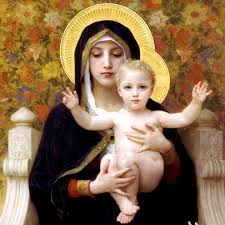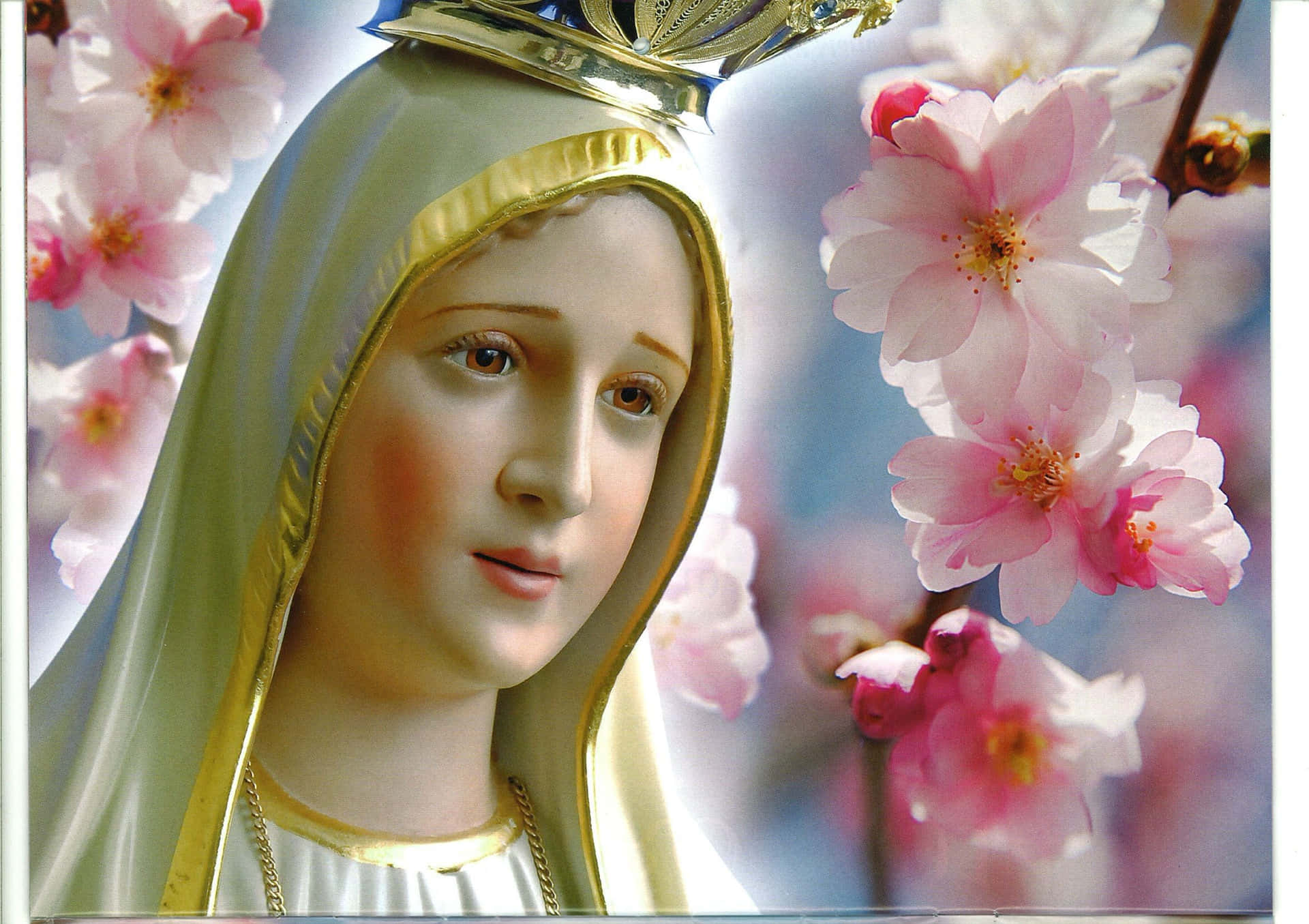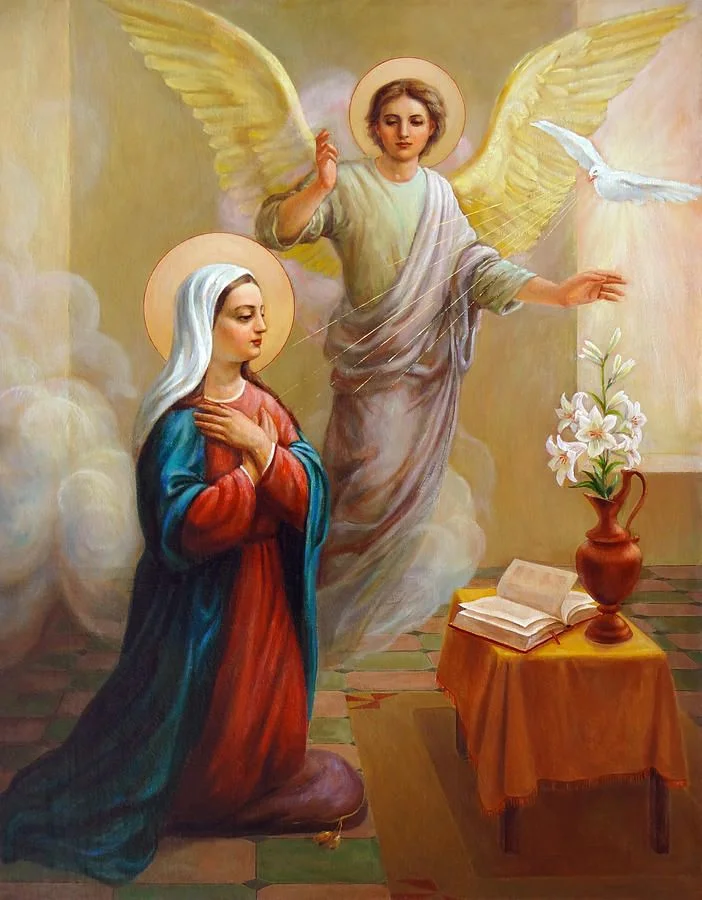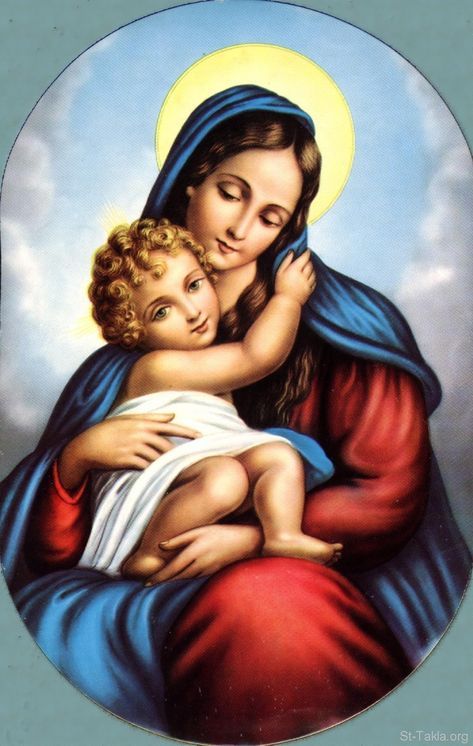The Virgin Mary's Pivotal Role in the Divine Economy of Salvation
In Christian theology, particularly within the Roman Catholic tradition, the Virgin Mary occupies a position of profound significance within what is known as the divine economy of salvation – God's overarching plan for the redemption of humanity. This plan unfolds through key moments and figures, and Mary's role, characterized by grace, obedience, and unique privilege, is central to understanding the incarnation and subsequent salvation offered through Jesus Christ. We will explore the multifaceted dimensions of Mary's involvement, highlighting her indispensable contribution to the salvific narrative.
-
The Annunciation: A Paradigm of Obedience and Faith: The narrative commences with the Annunciation, as recounted in the Gospel of Luke (1:26-38). The angel Gabriel's appearance to Mary, her acceptance of God's call to conceive Jesus through the Holy Spirit, marks a pivotal juncture. This moment embodies the concept of *fiat*, or "let it be done," demonstrating Mary's unwavering faith and obedience to the divine will. This event is a practical application of covenant theology, where God initiates a promise and Mary's "yes" is the human response, setting in motion the fulfillment of salvation history. Like in Finding Strength in Transition: A Biblical Guide to Navigating Change with Faith, Mary embraced a life-altering change with faith.
-
The Immaculate Conception: Divine Preparation: The doctrine of the Immaculate Conception, formally defined in Catholic dogma, posits that Mary was conceived without original sin. This is not to suggest that Mary didn't need salvation, but rather that she was redeemed in a unique and prevenient way, in anticipation of the merits of her Son. This grace prepared her to be a worthy vessel for the incarnation, aligning with the theological principle of *gratia praeveniens* – the grace that precedes and enables human action toward God. This preparation mirrors the proactive approach needed in other areas, like 15 Proven Strategies for Proactive Business Risk Mitigation, where preparation is key to success.
-
The Mother of God (Theotokos): Incarnation and Divine-Human Union: Mary's title as *Theotokos*, Greek for "God-bearer" or "Mother of God," affirmed at the Council of Ephesus, underscores the profound reality of the Incarnation. Through Mary, God the Son took on human flesh (John 1:14), uniting divinity and humanity in the person of Jesus Christ. This concept illustrates the hypostatic union – the union of Christ's two natures, human and divine, in one person. Mary's motherhood is not merely biological; it's the foundational condition for the enfleshment of the Word. This role highlights the power and significance of motherhood, echoing themes found in Parenting Styles Today: A Comprehensive Guide for Modern Families.
-
Perpetual Virginity: A Sign of Consecration: The doctrine of Mary's perpetual virginity asserts that she remained a virgin before, during, and after the birth of Jesus. This belief signifies her complete consecration to God and her unique role in salvation history. While debated among various Christian denominations, it's understood within the Catholic tradition as a sign of her total dedication to God's plan, unburdened by other earthly ties. This notion resonates with the idea of focusing on one's strengths, as highlighted in Unlocking Career Success: A Strengths-Based Approach.
-
The Visitation: Recognizing the Divine Presence: Mary's visit to her cousin Elizabeth (Luke 1:39-45) is a powerful encounter. Elizabeth's recognition of Mary as the Mother of God, and the leaping of John the Baptist in her womb, demonstrate the recognition of Jesus' divine presence even before birth. This episode showcases the concept of *koinonia* – a fellowship or communion centered on shared faith and recognition of the sacred. This also highlights the power of connection, similar to the bonds explored in Long-Distance Friendships: Proven Ways to Build Deep Connections.
-
The Magnificat: A Song of Liberation and Justice: Mary's Magnificat (Luke 1:46-55) is a revolutionary prayer that expresses her humility, gratitude, and profound understanding of God's preferential option for the poor and marginalized. It echoes themes of social justice and liberation, reflecting a world turned upside down by God's grace. This prayer is a testament to the power of faith in action, reminiscent of the principles of Unlocking Africa's Potential: 15 Mindset Shifts for Unity and Prosperity, which calls for a transformed mindset to achieve societal change.
-
The Nativity: Humility and Fulfillment: The birth of Jesus in a humble stable in Bethlehem (Luke 2:1-20) underscores the paradox of God's incarnation – divine majesty entering the world in poverty and simplicity. Mary's role in this event is crucial, as she nurtures and protects the infant Jesus, fulfilling ancient prophecies and initiating the era of salvation. This moment symbolizes new beginnings, much like the fresh starts explored in Transform Your Life: A Practical Guide to Breaking Bad Habits.
-
The Presentation in the Temple: Prophecy and Foreshadowing: Mary and Joseph's presentation of Jesus in the Temple (Luke 2:22-35) is a significant event. Simeon's prophecy foretells both Jesus' destiny and the suffering Mary will endure, highlighting her participation in Christ's redemptive mission. This foreshadowing introduces the theme of *compassion*, Mary's willingness to share in her Son's suffering for the sake of humanity.
-
The Flight into Egypt: Protection and Perseverance: The Holy Family's flight into Egypt (Matthew 2:13-15) demonstrates their vulnerability and the threats faced by Jesus from the very beginning. Mary's role is that of a protector, safeguarding her Son from harm and persevering through hardship. This act of protecting the vulnerable resonates with themes of nurturing and safeguarding those in need.
-
The Finding in the Temple: Maternal Concern and Divine Wisdom: The story of finding Jesus in the Temple (Luke 2:41-52) reveals Mary's maternal concern and her eventual understanding of Jesus' unique relationship with God. This event underscores the tension between Jesus' earthly family and his divine mission, highlighting the gradual unfolding of Mary's understanding of God's plan. It highlights the importance of understanding and communication within family dynamics.
-
The Wedding at Cana: Intercession and Manifestation of Glory: At the Wedding at Cana (John 2:1-12), Mary's intercession prompts Jesus to perform his first public miracle, turning water into wine. This event demonstrates Mary's role as an advocate and intercessor, highlighting her concern for the needs of others and her ability to mediate divine grace. This illustrates the power of proactive problem-solving and resourcefulness.
-
The Crucifixion: Co-Redemptrix and Spiritual Motherhood: Mary's presence at the foot of the Cross (John 19:25-27) marks the culmination of her participation in Christ's redemptive suffering. Her unwavering faith and sorrowful compassion exemplify her role as *Co-Redemptrix* (a debated title) and spiritual mother of all believers. Jesus' entrustment of Mary to John signifies the extension of her motherhood to the entire Church. The crucifixion highlights the themes of resilience and finding strength in difficult times, as explored in Heartbreak to Healing: Finding Strength and Resilience Through Gratitude.
-
The Assumption: Triumph and Eschatological Hope: The Assumption of Mary, body and soul, into heaven signifies her complete union with God and her triumph over death. This event foreshadows the ultimate destiny of all believers and offers hope for the resurrection of the body. The Assumption emphasizes the themes of hope and eternal life.
-
The Coronation: Queen of Heaven and Earth: Mary's coronation as Queen of Heaven and Earth recognizes her exalted status and her continued intercession for all believers. This title acknowledges her unique role in God's plan and her ongoing concern for the welfare of humanity. This event symbolizes recognition of hard work and dedication.
-
The Rosary: A Pathway to Contemplation and Intercession: The Rosary, a prayer deeply rooted in Marian devotion, provides a structured pathway to contemplate the mysteries of Christ's life through the eyes of Mary. Through the repetition of Hail Mary prayers, believers honor Mary and seek her intercession, fostering a deeper connection with Jesus. The Rosary serves as a tool for mindfulness and spiritual reflection.
Conclusion and Recommendations
The Virgin Mary's role in God's plan of salvation is undeniably significant, intricately woven into the fabric of Christian belief and practice. Her acceptance of God's will, her unique privileges, and her unwavering faith make her a model for all believers. Reflecting on Mary's significance invites a deeper understanding of the Incarnation, the redemptive power of Christ's sacrifice, and the call to discipleship.
Recommendations: Further research could explore the varying perspectives on Mary's role across different Christian denominations, fostering ecumenical dialogue and a richer understanding of her significance. Additionally, studying the impact of Marian devotion on art, literature, and culture can provide valuable insights into her enduring influence. Examining the psychological and sociological aspects of Marian devotion can also offer a nuanced perspective on its appeal and impact on individuals and communities.
Impacts and Applicability: Understanding Mary's role has profound implications for personal faith, spiritual growth, and engagement with the world. Her example encourages humility, obedience, and a willingness to embrace God's will, even when it is challenging. Her intercessory role offers comfort and hope, fostering a sense of connection with the divine. Practically, emulating Mary's virtues can lead to more compassionate, empathetic, and service-oriented lives.
Further Research: Future research could delve into the historical context of Marian doctrines, tracing their development and evolution over time. Comparative studies examining Marian devotion in different cultural contexts could also provide valuable insights into its adaptability and relevance in diverse settings.
Reader Pool: How might a deeper understanding of Mary's role in salvation history influence one's personal spiritual journey and engagement with social justice issues?
Related Posts
- Unlocking Africa's Potential: 15 Mindset Shifts for Unity and Prosperity
- Finding Strength in Transition: A Biblical Guide to Navigating Change with Faith
- Unlocking Career Success: A Strengths-Based Approach
- Long-Distance Friendships: Proven Ways to Build Deep Connections
- Parenting Styles Today: A Comprehensive Guide for Modern Families
- Transform Your Life: A Practical Guide to Breaking Bad Habits
- Heartbreak to Healing: Finding Strength and Resilience Through Gratitude





